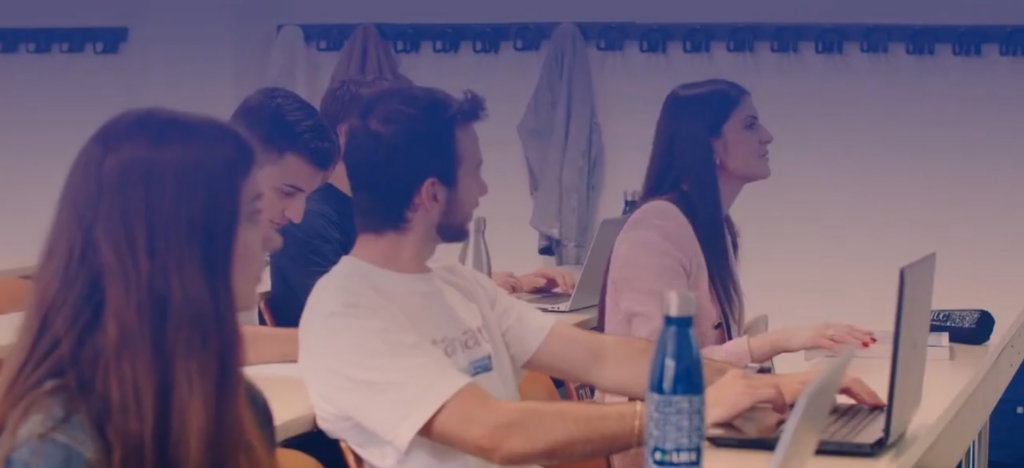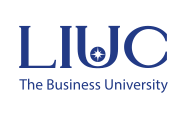Università Carlo Cattaneo - LIUC
Background
Università Carlo Cattaneo – LIUC has made significant changes in the last 10 years in supporting students with disabilities and specific learning disabilities. They currently represent approximately 6% of the student population (A.Y. 2022-2023 data), aligning with the statistics of other Italian universities.

Since 2019, the inclusion service has been strengthened, introducing a pedagogical support service carried out by two professionals. In 2020, a specialist psychological counselling service was added to deal with the difficulties that emerged during the Covid-19 pandemic. In this way, we believe we can address the complexity of the broad spectrum of learning disabilities more competently. Spreading awareness of learning disabilities and paying greater attention to neurodiversity is a constant challenge.
The presence of a plurality of skills to support students in their learning efforts has allowed teachers and university staff to develop greater sensitivity to the topic. In particular, specific training sessions have been planned for staff. Overall, there is greater awareness and attention to neurodiversity, even on the part of the university’s top management.
Challenges
The readability of texts was a major challenge, and even today, despite increased sensitivity towards the topic in recent years, books–especially scientific journals–often have inadequate formats and fonts. Brickfield Education Labs thus represents a valid tool to overcome these obstacles.

Solution
Brickfield is well known to the Moodle user community due to its certified integration in Moodle, starting from 4.1 version. LIUC has been using Moodle as a Learning Management System since 2019. Mediatouch, which is the Italian Certified Moodle Premium Partner in Italy and supports us, also suggested this choice.
When we implemented version 4.1, we used the open-source version of StarterToolkit and really appreciated it. Consequently, we decided to offer presentations to professors. The involvement of the Rector’s delegate for Inclusion was essential in deciding to subscribe to Brickfield Education Labs’ suite as part of LIUC’s Accessibility journey. Before subscribing, we analysed other products from competitors that could also be integrated, but we ultimately chose Brickfield due to our positive experience.
At LIUC, the Library is responsible for LMS management. We began implementing the Brickfield Accessibility Toolkit in 2022 and officially launched the product at the beginning of 2023, informing the entire LIUC Community and sharing the news.
There were no problems during the installation process, and we received support from the Brickfield team, whom we found to be very competent and strongly involved in the issues regarding accessibility. The training for teachers started very soon after implementation.
Outcomes
It was interesting to note that Brickfield training was included from the beginning, in the “Education and Training about Accessibility” module offered by our Rector Delegate to LIUC professors and lecturers. The Brickfield Suite, representing the “technical part” of addressing accessibility issues in educational materials, was presented in a context where learning with disabilities were approached holistically by pedagogists and instructional designers. It was education and not just instruction on how to use technology.
At the beginning of every academic year, we offer a short course (1 hour) and then suggest that teachers also attend the Brickfield training. The Library supports teachers with a service of assistance. On the LIUC e-Corsi pages we provide materials presented during the courses to our community.
G.B., full professor of Information Technology, declared: “Brickfield allows you to check the accessibility of materials and has provided me with interesting and very concrete suggestions to improve the study experience of students with learning difficulties.”
D.M., assistant professor of HRM, said: “I often use the tools offered and I really appreciate Brickfield not only for its functionality but also because it is extremely intuitive to use.”

Here is a short extract from the experience of one of our graduates.
“Previously, I had noticed the symbols referring to Brickfield services, but I never really questioned their purpose. Therefore, I believe it would be useful to first make students aware of the existence and functionality of these tools, even before they attempt to use them by themselves.
I think they provide valuable support not only for individuals with specific difficulties but also for those who might not necessarily need them. For instance, they could be useful for reading long documents, (something I might consider using them for myself), as listening can save time and make dealing with long documents less challenging and boring.
I’ve noticed that the tools are available in every course I’m enrolled in, for every PDF or PowerPoint published. Initially, I thought that requesting a file conversion would take a long time, but the notification of successful conversion and receipt arrived within a few minutes, which was a pleasant surprise because it’s important that the material is available at the time it is requested and not afterward.”
Recommendations
Knowledge of the tools available is the essential condition for promoting a satisfactory path towards accessibility, therefore we will continue to offer training sessions to all staff.
 It is not always obvious for a teacher to consider the accessibility of teaching materials. It is important to think in terms of a learning journey through which all teachers can be made aware of this issue. In particular, students’ neurodiversity is a fundamental aspect to consider when designing a training course. For this reason, we discovered that alternative formats are also useful for those who do not have visual impairments but simply prefer to learn by listening to the materials.
It is not always obvious for a teacher to consider the accessibility of teaching materials. It is important to think in terms of a learning journey through which all teachers can be made aware of this issue. In particular, students’ neurodiversity is a fundamental aspect to consider when designing a training course. For this reason, we discovered that alternative formats are also useful for those who do not have visual impairments but simply prefer to learn by listening to the materials.
We suggest investing in accessibility education involving the entire academic community in all its components. In this sense, the proposed meetings are open to all. We also recommend monitoring the evolution of the tools, as it is rapid and continuous. Therefore, training and education in accessibility are key.
While we cannot provide case studies that specifically attribute learning success to the Brickfield toolkit, we can argue that it substantially improves students’ learning experience, especially when used in conjunction with a coherent set of support measures.
Need more information?
Are you looking for an Accessibility Audit and Remediation, Content Alternate Formats or Accessibility Training?
Contact us or request a demo to see the full power of the Brickfield Accessibility Toolkit in action.
